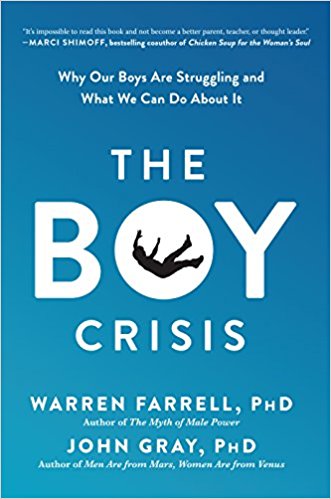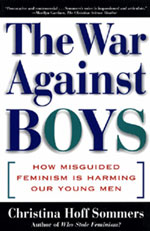InTheNews.Co.UK
Children with active fathers 'less likely' to be disturbed
Wednesday, 13 Feb 2008
Children brought up by an active father figure are less likely to develop psychological and behavioural problems, according to a new investigation.
Researchers at Uppsala University in Sweden have carried out a review of studies published in the US and UK between 1987 and 2007 and found that regular positive contact between a child and a father figure decreased the likelihood of children taking up smoking or being arrested.

Published in the February issue of the Acta Paediatrica journal, the study also revealed that children who lived with both a mother and father figure had less behavioural problems than those brought up solely by their mother.
Dr Anna Sarkadi from the Department of Women's and Children's Health at Uppsala University explained that children who talked regularly and shared activities with their fathers "achieved better levels of education and developed good friendships with children of both sexes".
"Long-term benefits included women who had better relationships with partners and a greater sense of mental and physical wellbeing at the age of 33 if they had a good relationship with their father at 16," she added.
Although Dr Sarkadi added that further research is needed to ascertain whether the positive outcomes depend on the father figure being the child's biological father, she added that the research "backs up the intuitive assumption that engaged biological fathers or father figures are good for children, especially when the children are socially or economically disadvantaged".
The research examined 24 papers published within the 20-year period, which covered 22,300 individual sets of data from 16 studies, the smallest of which looked at 17 children while the largest detailed 8,441 people.
The researchers hope the study will inspire governments and healthcare professionals to stress the importance of fatherly involvement in child rearing.

Why boys are in trouble
Boys have been painted as the bad guys in the push to encourage girls to succeed, leaving many young men feeling confused and alienated, wondering what they did wrong
The Associated Press
January 5, 1999
According to psychologist and author William Pollack, 'sports are the one arena in which many of society's traditional strictures about masculinity are often loosened, allowing boys to experience parts of themselves they rarely experience elsewhere.'
When Harvard Medical School psychologist William Pollack administered a test to a group of 150 teenaged boys a few years ago, the results were shocking.

The Boy Crisis Book
The Boy Crisis: Why Our Boys Are Struggling and What We Can Do About It
Authors- Waren Farrell PhD and John Gray PhD
What is the boy crisis?
It's a crisis of education. Worldwide, boys are 50 percent less likely than girls to meet basic proficiency in reading, math, and science.
It's a crisis of mental health. ADHD is on the rise. And as boys become young men, their suicide rates go from equal to girls to six times that of young women.
It's a crisis of fathering. Boys are growing up with less-involved fathers and are more likely to drop out of school, drink, do drugs, become delinquent, and end up in prison.
It's a crisis of purpose. Boys' old sense of purpose-being a warrior, a leader, or a sole breadwinner-are fading. Many bright boys are experiencing a "purpose void," feeling alienated, withdrawn, and addicted to immediate gratification.
So, what is The Boy Crisis? A comprehensive blueprint for what parents, teachers, and policymakers can do to help our sons become happier, healthier men, and fathers and leaders worthy of our respect. Read More ..

Health Canada Publication
The Invisible Boy: Revisioning the Victimization of Male Children and Teens
"... the existence of a double standard in the care and treatment of male victims, and the invisibility and normalization of violence and abuse toward boys and young men in our society.
Despite the fact that over 300 books and articles on male victims have been published in the last 25 to 30 years, boys and teen males remain on the periphery of the discourse on child abuse.
Few workshops about males can be found at most child abuse conferences and there are no specialized training programs for clinicians. Male-centred assessment is all but non-existent and treatment programs are rare. If we are talking about adult males, the problem is even greater. A sad example of this was witnessed recently in Toronto. After a broadcast of The Boys of St. Vincent, a film about the abuse of boys in a church-run orphanage, the Kids' Help Phone received over 1,000 calls from distraught adult male survivors of childhood sexual abuse. It is tragic in a way no words can capture that these men had no place to turn to other than a children's crisis line."
American Psychological Association
Dating Violence Statistics in the United States
Nearly one in 10 girls and one in 20 boys say they have been raped or experienced some other form of abusive violence on a date, according to a study released Sunday at the annual meeting of the American Psychological Association.
![]()
The mean T-shirt: From the Stupid Factory
Todd Goldman says his popular boy-bashing T-shirts are simply funny.
So why are retailers having second thoughts? Read More ..

Why boys are in trouble
Boys have been painted as the bad guys in the push to encourage girls to succeed, leaving many young men feeling confused and alienated, wondering what they did wrong
The Associated Press
According to psychologist and author William Pollack, 'sports are the one arena in which many of society's traditional strictures about masculinity are often loosened, allowing boys to experience parts of themselves they rarely experience elsewhere.'
When Harvard Medical School psychologist William Pollack administered a test to a group of 150 teenaged boys a few years ago, the results were shocking.

